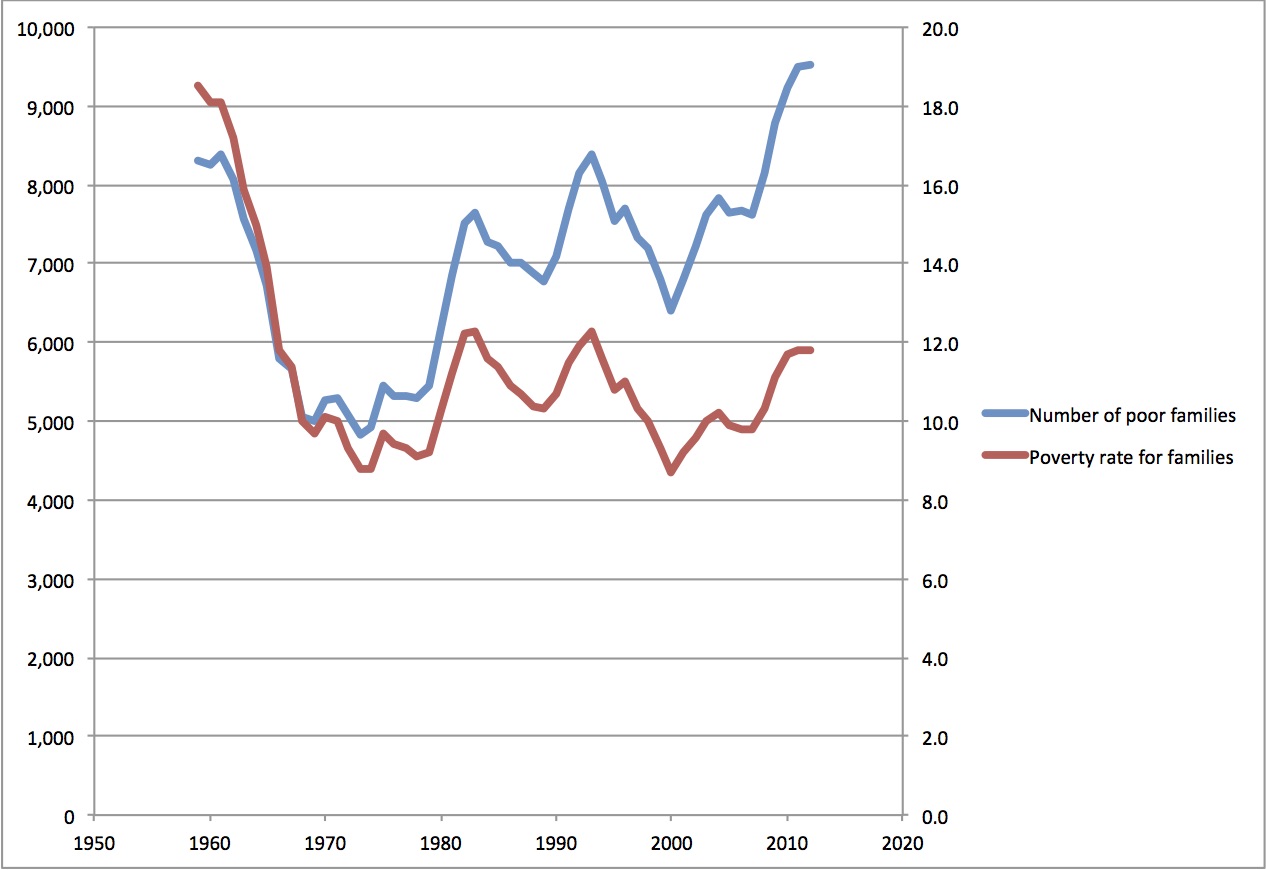Before that, they opposed things they had reason to oppose, and if they lost, they devoted themselves- mostly- to a useful opposition of trying to improve programs, and save money in such ways.
Now, and increasingly, they just want to dismantle, and replace things with nothing. I find that troubling, and deficient in both general empathy and specific historical knowledge of how bad things used to be for those who didn't choose their parents wisely enough:
The US government didn’t lose the War on Poverty: it changed sides
I made this observation in comments on Chris’ ideal theory post, and got some pushback, so I thought I’d take a look back at the data


Both the number and the percentage of families in poverty dropped sharply during the 1960s when the “War on Poverty” was being waged actively, and remained near their all-time lows through the Nixon and Carter years until 1979, when the Volcker recession hit, followed by the election of Ronald Reagan. These events can reasonably be said to mark the point at which the government unequivocally changed sides.
The number of households in poverty has risen steadily since then and is now higher than in 1959, the year for which the poverty level was first defined by Mollie Orshansky. The poverty rate has remained consistently higher than in the 1970s, except for a brief deep at the peak of the late-1990s boom.
A quick note on the data: Unlike most other countries, the US uses an absolute poverty line, rather than a measure set relative to median income. Orshansky estimated a food budget that was adequate but austere by the standards of 1960, then multiplied the cost by 3 on the basis that the food share of a poor families budget should be 1/3. It’s been adjusted for inflation since then, but not increased in real terms. It might be argued that the CPI overstates inflation somewhat. But much the same point applies to measures of GDP per person which has increased dramatically over the 35 years since the US government stopped fighting poverty and started fighting the poor.
The measure includes cash transfers, but not some non-cash benefits, notably including the Supplemental Nutrition Assistance Program (food stamps) the Earned Income Tax Credit introduced in 1975 . The result is to understate the progress made on poverty reduction since the 1960s, but not to change the basic story. Food stamps have been under attack from the right since the early years of the Reagan Administration. EITC had bipartisan support until the 1990s, but is also now under attack.
No comments:
Post a Comment